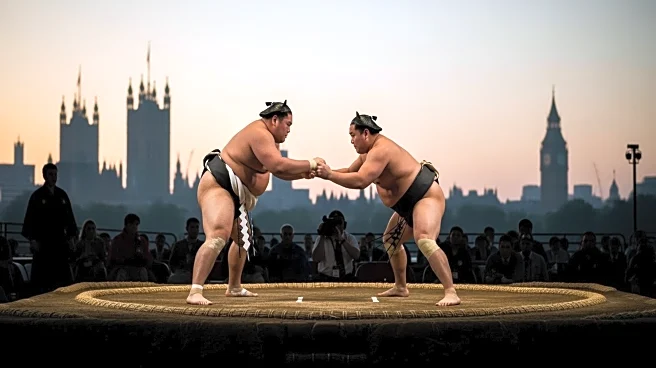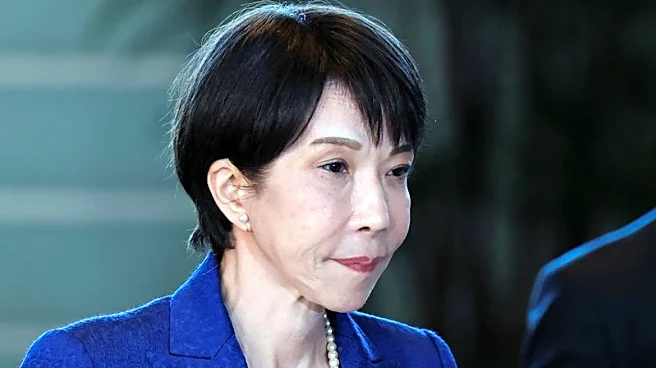What's Happening?
Sumo wrestling returns to London for the first time in 34 years, with a Grand Tournament hosted at the Royal Albert Hall. This event marks only the second time a sumo tournament has been held outside Japan.
The focus is on two yokozuna, Hoshoryu Tomokatsu from Mongolia and Onosato Daiki from Japan, who are the 74th and 75th men to achieve this prestigious rank. Onosato, who became a yokozuna earlier this year, expressed excitement about showcasing sumo to UK fans. The tournament features intense competition, including a recent play-off between the two champions at the Aki Basho, where Onosato emerged victorious. The event has sold out all five days, highlighting the growing international interest in sumo wrestling.
Why It's Important?
The return of sumo wrestling to London signifies the sport's expanding global reach and popularity. Hosting such a prestigious event outside Japan underscores the cultural exchange and international appeal of sumo. For the UK, this event offers a unique opportunity to experience a traditional Japanese sport, potentially fostering greater cultural understanding and appreciation. The presence of top-ranked yokozuna like Hoshoryu and Onosato elevates the tournament's status, attracting attention from sports enthusiasts and media worldwide. This could lead to increased interest in sumo, encouraging more international tournaments and collaborations.
What's Next?
The successful hosting of the sumo tournament in London may pave the way for more international events, expanding the sport's reach beyond Japan. Organizers might consider additional locations for future tournaments, further promoting sumo globally. The event's popularity could inspire other countries to host similar cultural sports events, enhancing international sports tourism. For the athletes, continued success in international competitions could lead to greater recognition and opportunities, potentially influencing the next generation of sumo wrestlers.
Beyond the Headlines
The event highlights the logistical challenges of hosting a traditional Japanese sport abroad, such as accommodating dietary needs and training routines of the wrestlers. It also emphasizes the cultural significance of sumo, where the role of a yokozuna carries immense responsibility and tradition. The tournament serves as a platform for cultural diplomacy, showcasing Japan's rich heritage and fostering international goodwill. Long-term, this could influence how traditional sports are perceived and integrated into global sporting events.










